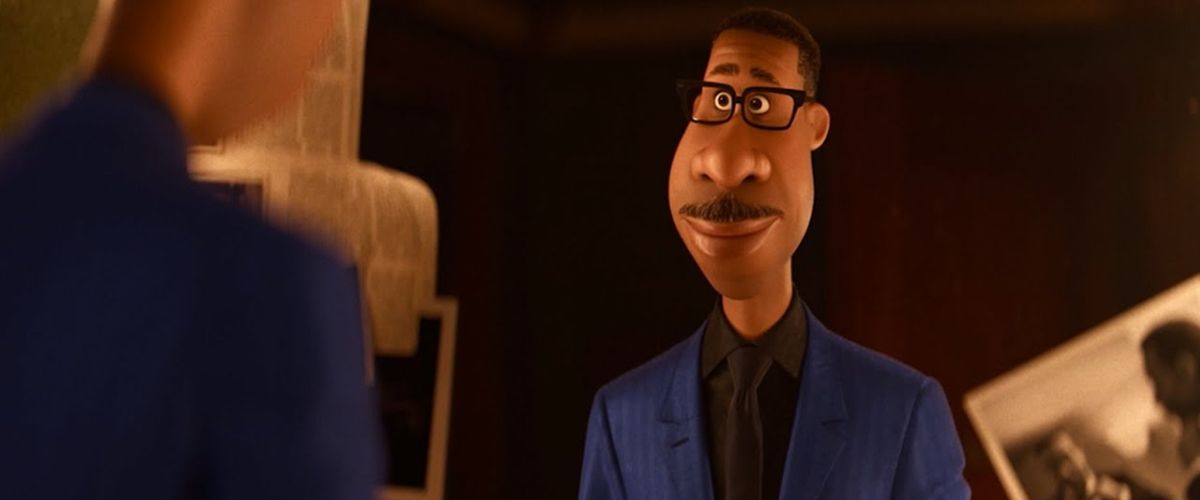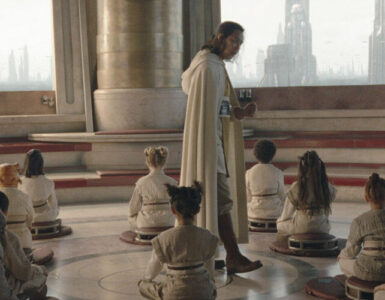- Shares
- 77
Good things come in pairs, especially where director Pete Docter’s best-known works are concerned. In Monsters, Inc., the unlikely iconic duo of Mike Wazowski and Sulley (with Boo along for the ride) charmed their way into the hearts of audiences, while Up brought together the seemingly incongruous personalities of Carl Fredrickson and Russell on one of the most memorable journeys ever. The same opposites-attract trope is set into motion in the man’s latest film Soul, a charming, heartening, and admirably ambitious animated take on birth, life, death, and whatever happens after.
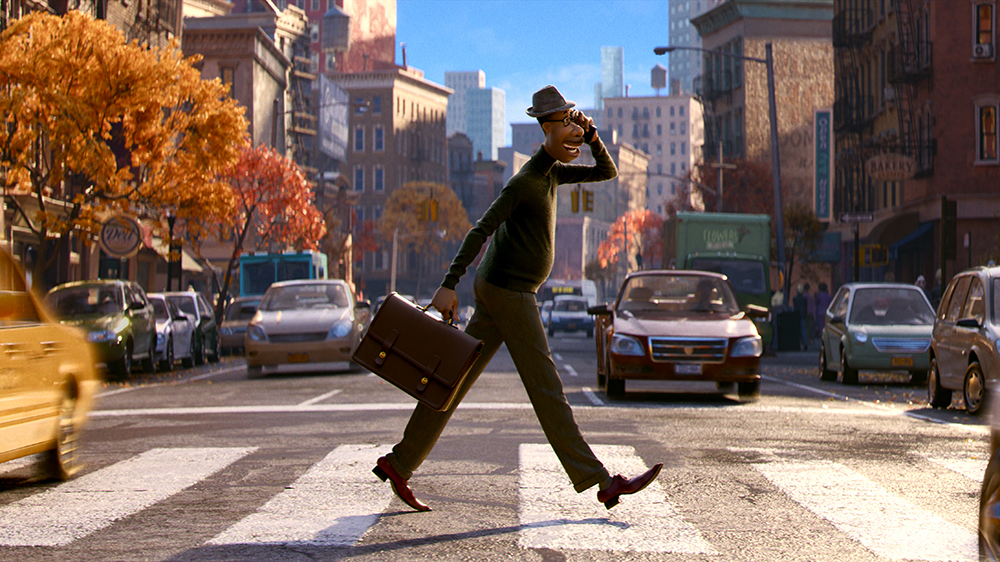
It’s not an easy concept to understand, with the exploration of existential themes making for a bizarre, complicated, and abstract affair. That isn’t stopping Pixar from demonstrating their storytelling prowess yet again, as the studio builds on past experience from Inside Out, which also focuses heavily on intangible entities. Here, the creative team finely balances out the adult themes (illusion of choice, identity, self-worth, loneliness, and the purpose of existence) with welcome touches of fantastical childlikeness and humour for that signature family audience DNA.
At the centre of the story is one Joe Gardner (Jamie Foxx), a middle school music teacher who has been offered a permanent teaching position, but whose long-standing dream is to put up a great jazz performance on stage in front of an audience. Between his mother’s mindset that being a professional musician isn’t a “proper job”, and facing a general loss of direction in life, he finally gets a chance to play in the ensemble of a renowned saxophonist (Angela Bassett) after an impressive trial showing, but life just isn’t keen on cutting the poor man some slack. He falls down a manhole cover shortly after, becomes separated from his soul, and enters an otherworldly domain.

That, as it turns out, is a suspended plane existing both before and after death, named the Great Before and Great Beyond respectively. Finding himself (his soul?) on the stairway to the Great Beyond, Gardner, deciding that he isn’t ready to go, manages to escape to the former realm, where personalities and traits are assigned to new souls. It’s a particularly interesting premise – where conventional thinking would assert that these are moulded and nurtured after birth, Soul suggests otherwise, bringing back the oft-contested nurture-versus-nature conundrum.
The process of giving souls innate qualities counts towards the checklist for an Earth badge acquisition, which must be obtained in order to descend into a human body. A big part of that involves finding their “spark”, otherwise known as the number one passion in their lives, but much like real life, there are those who struggle to do so. Here’s where the errant, gregarious human-in-training 22 (Tina Fey) comes into the picture as Gardner’s sidekick, whose negative view of life on Earth makes her reluctant to find a host body. Despite their differences, the duo manages to (sort of) reclaim Gardner’s body back on Earth, and embarks on a journey involving bodyswapping (soul-swapping?), self-discovery, ambition-chasing, and of course, the meaning of life.
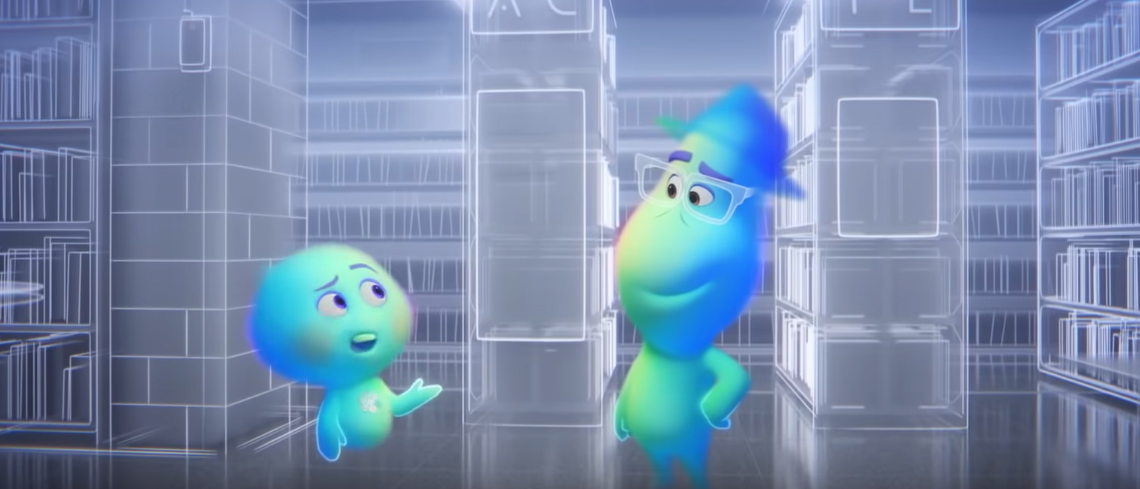
The characters’ sense of uncertainty and self-conflict hits close to home, and the film does a good job at exploring their experiences. Can’t devote oneself to a life passion even after repeated tries? Check. Giving up dreams and ambitions in the name of practicality and survival? Double check. Having no clear direction for the future, or a lack of purpose in general? Triple check. Soul captures Gardner’s aimlessness and longing and 22’s confused vexation realistically well, though the eventual solution, especially to Gardner’s problem, proves a little too convenient.
Despite the inherently philosophical and mature tone of the themes, Soul is still a family movie at its core. While humorous moments may fall flat at times, the team’s attempts at levity are much welcome – there’s only so much solemnity audiences can take, after all. Popular cultural nods (“Someone call the wham-bulance,” 22 says in one instance) help to lighten the mood, but the ploy of using historical figures like Mother Teresa and Abraham Lincoln for added comedic relief comes across as rather clever. In such cases, the movie doesn’t take itself too seriously, and 22’s dry wit, child-like mischief, and sharp sarcasm serve as a constant reminder of that.
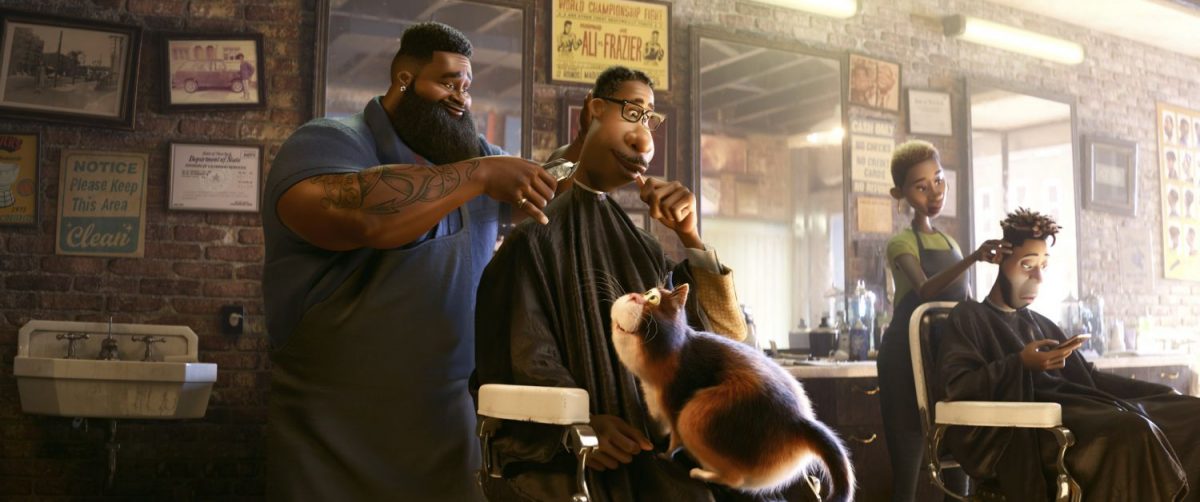
It’d also have been a good chance to build upon 22’s characterisation, which together with Gardner’s, seems to have fallen short of expectations. Even as both Foxx and Fey breathe life into their characters, the pair doesn’t really charm audiences all that well. After Gardner returns to Earth from the Great Before, his actions cast him in a slightly insufferable, self-centred light, which while understandable, pushes him down the rungs of likeability. He gets a small redemption near the end of the movie, but it barely qualifies as a pass; rather, delving more into his personal relationships (there’s one major development with his mom, and that’s about it) would flesh out his character further.
Gardner isn’t a badly-developed character, yet there’s undeniably unexplored potential to work with to make him less flat – and that’s quite the pity, especially with Soul being the first Pixar title to feature a black protagonist. It’s a significant milestone, and though having a white director at the helm gives rise to concerns like inauthenticity and performatives, it’s nonetheless an encouraging first step toward embracing representation. Coco did the same with a focus on Mexican culture and traditions, and here’s to hoping that more diversity will be included in future works.
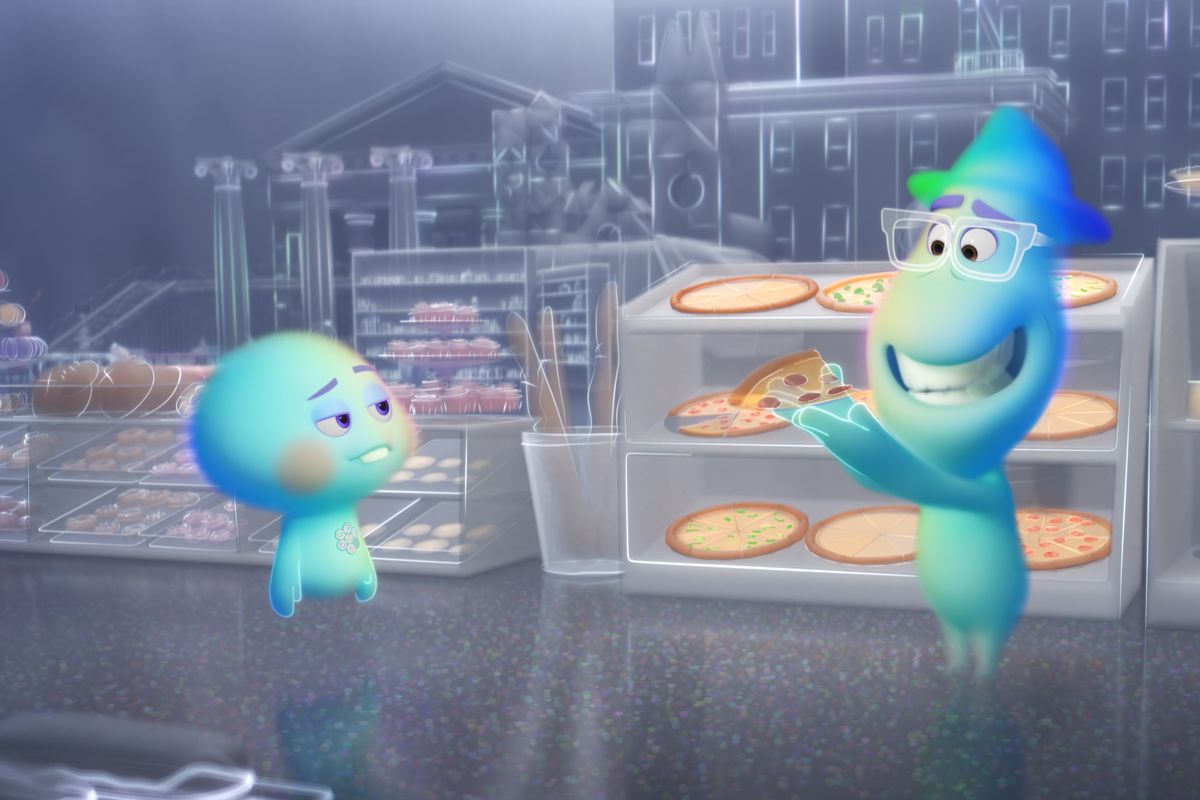
Now, back to the topic at hand. 22, in contrast to her adult counterpart, comes across as more endearing and earnest. She’s that one friend who always has plenty of stories to tell, and that one companion who teases or banter with you to show affection. Her feelings of insecurity and loneliness are artfully conveyed, but the lack of a distinct personality makes her less memorable than Docter’s other Pixar characters.
There are some narrative inconsistencies that Soul leaves behind as well. For one, the explanation behind 22’s adamant refusal to accept life before living it is pretty shaky, and the body-swapping mechanics confusing – the moments when she uses her own voice or Gardner’s can be jarring, especially for a younger audience. The ending of the movie is also rather abrupt, bringing the story to conclusion that lacks a sense of complete closure.
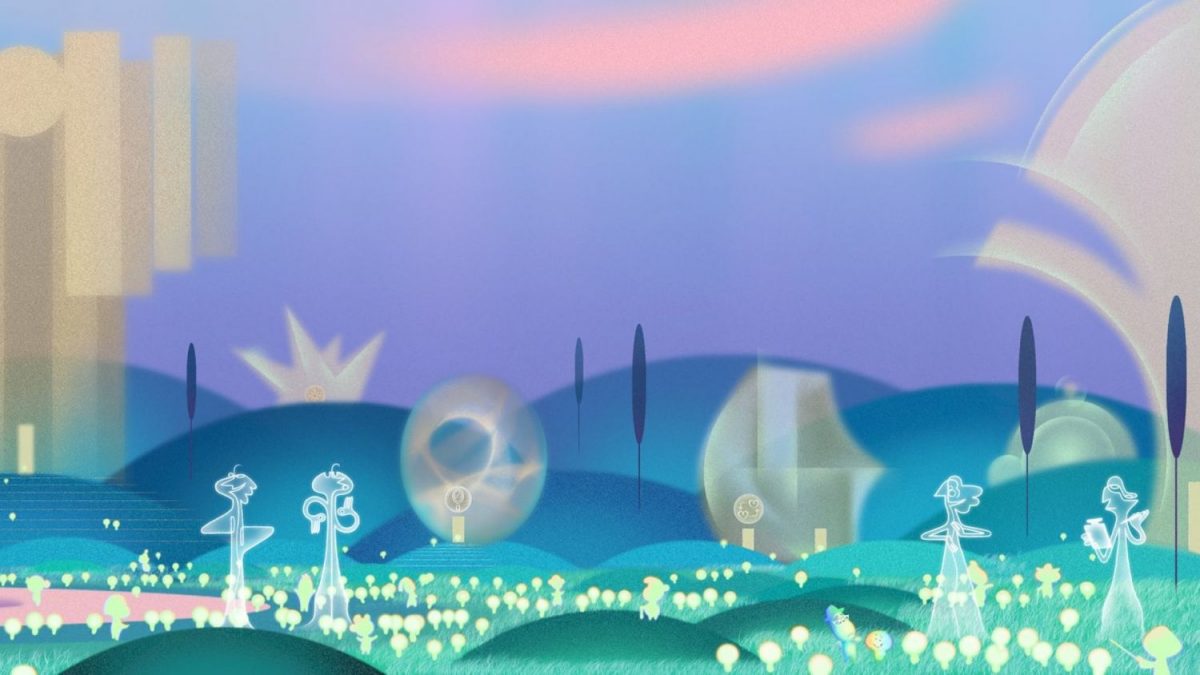
Considering the complexity of the subject matter, however, some logical fallacies are only to be expected. Credit has to be given where it’s due, and Pixar’s bold and refreshing take on existential themes is an admirable endeavour. The movie’s greatest merit lies, unsurprisingly, in animation, boasting breathtaking visuals and gorgeous light and shadow effects from the psychedelic, ethereal world of the Great Before to the Earth’s vibrant, lively environment. Colours are used to great effect, with bright, soft tones associated with good, positive entities like newborn souls, and the darker, ominous strokes of black tagged to menacing and intimidating auras (the Great Beyond and lost souls).
Transitions between scenes are executed smoothly, and there are instances of daring, unconventional animation techniques at play. In one instance, the camera perspective does a full 360-degree swivelling segue, while Gardner’s plummet from one reality to another sees bright colour hues bleeding into a monochromatic palette complete with trippy effects.
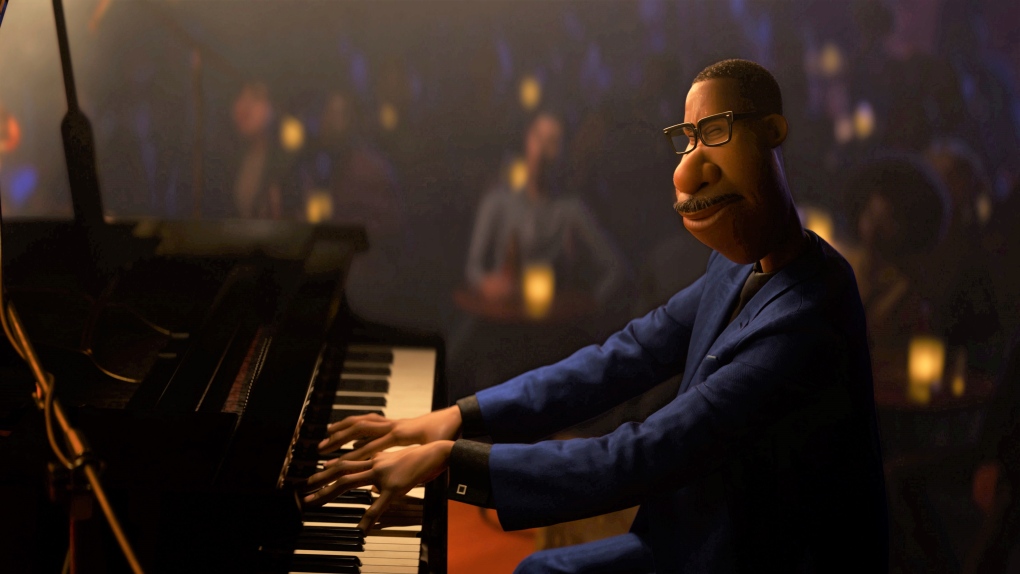
Likewise, the movie’s sound design and music score proves to be exceptional. Led by Grammy-nominated musician Jon Batiste, the jazz ensemble makes for a beautiful, soulful (pun intended) listening experience, with the piano accompaniment lending a touch of liveliness to the performance.
At its core, Soul is a sincere exploration and contemplation of what it’s like to live. It’s an admirably lofty take on one of life’s complexities, with a unique, curious spin on the concept of life, death, and the significance of each. It’s not a film that everyone can get into, but the team has once again shown how much it can achieve by shooting for the stars that nobody else guns for, turning abstract, intangible entities into a concoction of wonderful visuals, spectacular music, and metaphysical humour. It isn’t Pixar’s finest piece, nor is it a flawless narrative tool, yet none of that really matters, for it has that one thing that counts: soul.
Soul will be released in local theatres on 25 December 2020.
GEEK REVIEW SCORE
Summary
Full of ambition and heart, Pixar’s Soul fumbles a little on execution, but remains a charming, emotional journey that delivers splendid visuals, music, and genuine curiosity– and the reminder that there’s nothing wrong with feeling lost in life.
Overall
7.9/10-
Story - 7.5/10
7.5/10
-
Direction - 8.5/10
8.5/10
-
Characterisation - 7.5/10
7.5/10
-
Geek Satisfaction - 8/10
8/10

